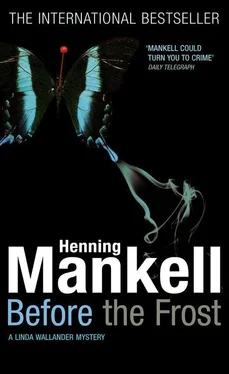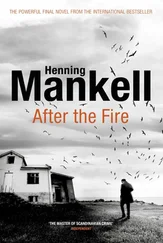“There is nothing.”
“Give me the gun and come here. For my sake.”
“You don’t know me.”
“No, but I’ve teetered on a bridge railing. Sometimes I have nightmares where I throw myself off.”
“When you’re dead you don’t dream anything. I don’t want to live.”
The conversation went back and forth. After a while — how long it was Linda couldn’t say because time seemed to have been suspended when she first poked her head up out of the roof and faced the barrels of the shotgun — she could tell that the girl was fully engaged in what they were saying. Her voice was calmer, less shrill. This was the first step. Now she held an invisible lifeline of sorts around Maria’s body. But nothing was resolved until the moment when Linda had used up all her words and started to cry. And that was when Maria finally gave in.
“All right,” she said. “I just want them to turn off all the fucking lights. I don’t want to see my mother. I only want to talk to you. And I won’t come down right away.”
Linda hesitated. What if it was a trap? What if she had decided to jump when the lights were turned off?
“Why won’t you come down with me now?”
“I want ten minutes.”
“What for?”
“Ten minutes to see what it feels like to have decided to live.”
Linda climbed down and all the lights were turned off. Sundin kept an eye on the time. Suddenly it was as if all of the events from the dramatic days at the beginning of September came out of the darkness at her with full force. She had been so grateful for her work, and the new apartment had taken so much of her attention, that she had not yet had the opportunity to slow down enough to take on the full impact of what she had been through. Even more important was the time she had been spending with Stefan Lindman. They had started seeing each other, and sometime in the middle of October Linda had realized that she wasn’t alone in having fallen in love. Now, when she stood there trying to pick out the outline of the girl on the roof who had decided to live, it was as if the moment had arrived for a kind of resolution to all that had happened.
Linda stamped her feet to stay warm and looked up again at the roof. Had Maria changed her mind? Sundin mumbled that there was only a minute left. Then the time ran out. The ladder truck drove up to the edge of the building. Two firemen helped the girl down, a third went up and collected the weapon. Linda had told Sundin and the others what she had promised, and she insisted that her side of the bargain be upheld. Therefore she was the only one there when Maria reached the bottom of the ladder. Linda hugged her and suddenly both of them started to sob. Linda had the strange feeling that she was hugging herself.
An ambulance was on the scene. Linda helped Maria over to it and waited until it drove away, the gravel crunching under its wheels. The frost had arrived; the air was already below freezing. Officers, the old minister, the firemen: everyone came up and shook her hand.
Linda and Ekman stayed until the fire trucks and patrol cars had left, the yellow tape had been taken down, and the crowd had dispersed. Then there was a broadcast about a suspected drunk driver on Österleden. Ekman started the engine. They left, and Linda swore under her breath. Most of all she would have liked to go back to the station for a cup of coffee.
But that would have to wait, like so many other things. She leaned against Ekman to read the thermometer for the outside temperature.
Minus three degrees Celsius. Winter had arrived in Skåne.












